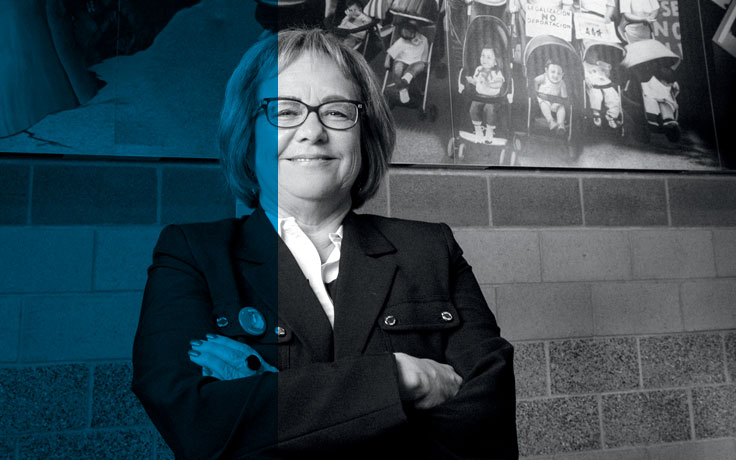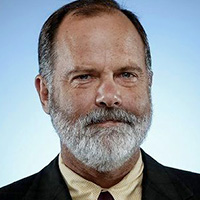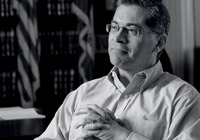MARIA ELENA DURAZO IS NOT TO BE TAKEN LIGHTLY.
In 1992, as Los Angeles was desperately trying to attract tourists, Durazo’s hotel workers union warned about a “city on the edge,” a dystopian admonition to stay away because of crime and violence. Durazo and her allies distributed the videotaped warning to chambers of commerce across the country. Mayor Tom Bradley was aghast. It was a reminder to the L.A. hotel industry that Durazo could affect its fate. The industry caved, and her union members got the contract they were seeking. Five years later, when Mayor Richard Riordan was in office, Durazo helped champion a “living wage” proposal requiring firms with city service contracts to increase pay for employees, including janitors, security guards and parking attendants. Riordan vetoed the measure, only to have the city council pass it over his veto. The workers got their raise.
Durazo, the first woman to head the Los Angeles County Federation of Labor, is now the vice president for immigration, civil rights and diversity of UNITE HERE, a nationwide union for restaurant, hospitality and casino workers. She is a mother, grandmother and widow. Her life has included large helpings of joy and struggle. Through it course two closely connected certainties: That this is a nation of immigrants, and that labor unions have provided those immigrants with homes and jobs, community and self-sufficiency.
Immigrants, their well-being and their dignity are under assault at the moment. The offensive is coming from the White House. That is formidable. But so is Maria Elena Durazo.
I recently met with her at the Miguel Contreras Learning Center, just west of downtown Los Angeles. It is named for her late husband. The place was teeming with young people, mostly Latinos and blacks, some heading to workouts, others huddled with homework. They nodded and smiled at Durazo, a face as familiar to this generation as to the last. Above her was a mural — a tribute to the Los Angeles labor movement, featuring, among others, her.
She is not the central figure of this painting. That honor goes to Miguel. In addition, off to one side in the mural is a tiny cabin being approached by a pickup truck, its headlights cutting through the dark. This captures one night on a farm where Miguel, his brothers and father worked decades ago. The owner of the farm appreciated Miguel’s father but had learned that he was a follower of Cesar Chavez — a “Chavista” — and so fired him and ordered him off his land. The family gathered its belongings that night and left.
Durazo tells that story with reserve and appreciation. She does not point to another prominent figure in the mural. There, in the foreground but without fanfare, is Maria Elena, pushing a baby carriage through a demonstration
Cheerful Greeting, Tough Politics
Durazo, 64, does not seem like a hardened activist. She’s cheerful, easygoing and kind. But her broad smile, inviting laugh and soft eyes turn steely when she grows angry. No elected official on the receiving end has ever forgotten the moment. When we sat down, she gave me a high five and a hug. This is the same person who has marched with hotel workers and janitors and organized farmworkers and laborers. Few people are more determined to achieve justice and able to appreciate joy.
She may find that tested next year, as Durazo recently announced her intention to run for a seat in the California State Senate in 2018, replacing termed-out Senator Kevin de Leon. Already backed by her friend and former Mayor Antonio Villaraigosa and sure to attract labor support, Durazo is considered a strong contender.
In the late 1980s, she led a challenge to the leadership of Hotel Employees and Restaurant Employees Local 11. She alleged corruption. Contreras, an experienced labor leader, was brought in to figure out what was going on. In one sense, at least, he did: By 1988, he and Durazo were married. In 1994, Contreras ascended to the leadership of the county labor federation. Eleven years later, at age 52, he died of a heart attack. After a brief stewardship by Martin Ludlow, Durazo took over the top job.
Led by Contreras and Durazo, the Southern California labor movement underwent a transformation. Working with such allies as Fabian Núñez, later to become speaker of the State Assembly, and Madeline Janis, co-founder of the Los Angeles Alliance for a New Economy, they stitched bonds among labor, environmental and religious leaders, focused on those at the bottom of the pay scale and aggressively demanded change from local leaders.
By the mid-1990s, there was no school board member, no member of the Los Angeles City Council or of the county Board of Supervisors, no elected official at any level who pondered a major decision without considering the ramifications for organized labor. I have covered Los Angeles politics for more than 20 years, and no one has wielded greater influence over that period than Durazo. Harold Meyerson, one of the great chroniclers of the late-20th-century labor movement, described Contreras and Durazo as a modern “power couple.” The New York Times viewed the labor movement in Los Angeles as the most effective in the nation.
Historically, that was an aberration — one that distinguishes modern Los Angeles from its past. Throughout its early years, Los Angeles defined itself as a haven from organized labor, a free-market alternative to San Francisco, with its powerful dock unions. During that period, Los Angeles presented itself as the businessman’s option, a place where small businesses could thrive in the absence of labor pressure on wages and benefits — an alternative fiercely endorsed in the pages of its largest newspaper, the Los Angeles Times. As late as the 1980s, organized labor’s political power was limited and conservative, concentrated in the building trade unions and the Los Angeles Police Protective League, with their respective interests in development and public safety.
Then came Durazo, Contreras and their colleagues. They refocused labor’s energy toward immigrant communities and low-wage workers. Their volunteers joined political campaigns, walked precincts and made phone calls. They rewarded those who supported them and punished those who did not. Today there is no more powerful force in local and state politics than organized labor.
Not all of the results have been good. California’s pension obligations are staggering. Raises for city workers, especially under Mayor Villaraigosa, exceeded the city’s capacity to pay, and recession forced him to make dramatic cutbacks, sometimes over the objections of his former allies. Mayor Eric Garcetti, who was opposed by the county labor federation, has made peace with it — but he boasts of holding down city salaries and pensions. Regardless, here is what is most telling about today’s labor movement in Los Angeles: Some cheer labor’s influence. Some bemoan it. But no one denies it.
Blunt Talk
Is President Donald Trump a racist?
There are many ways to field that question. His supporters say: Of course not; he speaks his mind and is unrestrained by political convention — “political correctness,” to use the hackneyed term. His critics may privately believe that he is, but they often answer in bromides: His language is inflammatory (a Mexican-American judge can’t be fair because of his ethnicity; Muslims pose a special threat to American values), but it is hard to know another person’s heart — or words to that effect. Those are the hedged critiques of politicians schooled in semi-commitment.
Ask that question of Durazo, and she won’t equivocate. “Yes,” she said, adding that Trump’s father was, too.
So, with the election of Donald Trump, Durazo’s mission has turned to challenging a sitting United States president over policies that, in her view, demonize immigrants and harm labor — policies that give racism new purchase on ground long assumed to have been won.
Evidence of growing anger and division are all around. Durazo recalled a recent meeting of the county Board of Supervisors where she and other immigrant-rights advocates arrived to urge members to help pay for a defense fund for those accused of being in America illegally. As her group approached the meeting room, it was confronted by protesters.
“They were screaming: ‘Go back to your country!’” recalled Durazo, who was born in the United States. “It was ugly. It was like they wanted violence.”
Still, she and labor prevailed that day, and now she is seeking support from employers who see Trump’s accelerated deportations and restrictions on entry as hindrances to their business, violations of human rights, or both. If federal agents arrive at a workplace demanding records, executives typically call lawyers and work toward an agreement, Durazo said. She is asking the executives not to roll over to authorities; they may have the right to examine business records but not to mill about on factory floors or demand papers from employees.
“It’s up to employers to defend their employees,” she said. “Don’t we want stability in our
economy? Deporting parents or dividing families doesn’t bring stability.”
Similarly, she is urging cities to gain the trust of immigrants so they will help police investigate crimes, and she is lobbying all schools, including universities, to protect their students. Trump might threaten funding, but his leverage is limited; the Supreme Court has held that the federal government cannot use funding to push around local governments.
“We aren’t going to be blackmailed,” Durazo said (For more on this question, see this issue’s Table Talk with California Attorney General Xavier Becerra).
Durazo envisions labor returning to its roots — as a welcoming institution for new immigrants: Polish, Irish, Italian, Salvadoran, Guatemalan, Mexican. “It was always the union movement that immigrants looked to to do better in their lives,” Durazo said. “They knew that it was only through a union that they were going to get safer working conditions and better treatment….
“Unions have had a very clear role in this country. Without unions, immigrants would not have been able to fulfill their dreams.”






















Comments